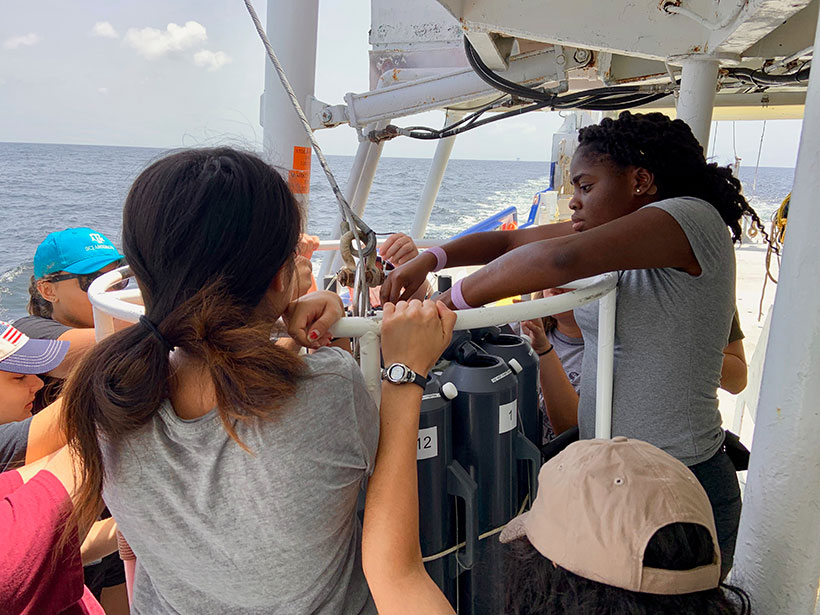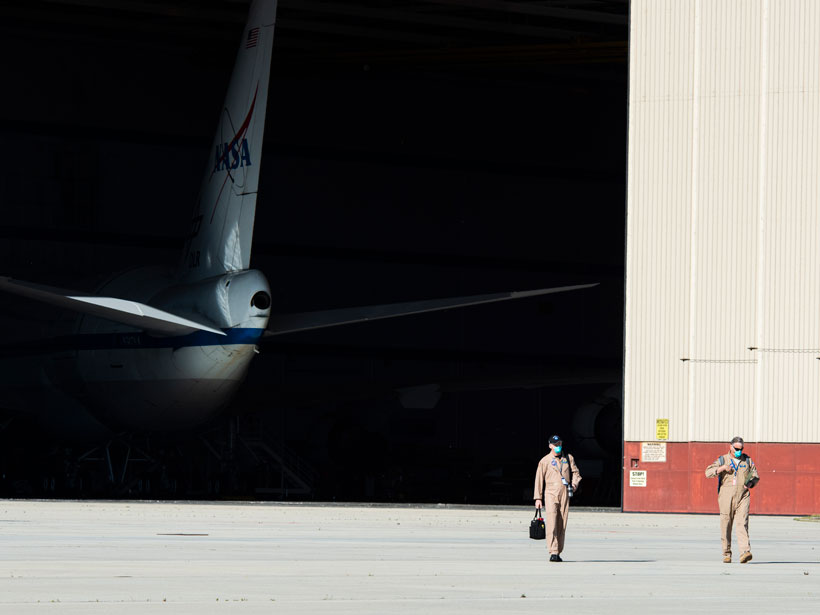Preparing for Future Missions at the Armstrong Flight Research Center. As I was scrolling through NASA’s images of the day, I passed this one posted on 17 June and wondered what our future will look like. I know masks are not new for some cultures, but since COVID-19 is worldwide, will this become our norm in public? Or will we one day look back and recall this time of wearing masks as a historic era? What will we tell future generations?
—Melissa Tribur, Production Specialist
The Arctic Is on Fire: Siberian Heat Wave Alarms Scientists.
We are in a relentless Arctic #heatwave – Siberia is literally on fire right now and it’s set to continue.
Temperatures will comfortably exceed + 30 °C within the Arctic Circle over the next 10 days at least. It is a staggering + 20-25 °C warmer than it should be…
[THREAD] pic.twitter.com/J9opJLIaIw
— Scott From Scotland (@ScottDuncanWX) June 19, 2020
So…this happened this week. Hotter than 100°F in the Arctic. There’s a heck of a lot of very important things going on right now: fighting a deadly pandemic, dismantling systemic racism in our communities and institutions, rebuilding economies. But we can’t forget that this is all happening against a backdrop of climate change that magnifies each of these problems. None of these crises exists in isolation, so let’s make sure that as we rebuild our society we do so in a green and equitable way.
—Kimberly Cartier, Staff Writer
How Much Can Financiers Do About Climate Change? About 3/4 of the heaviest emitters of greenhouse gases are investor-owned companies. The biggest 250 financial firms dominate investment in these companies, according to a detailed analysis published in the Economist. The analysis concludes that finance is well positioned to be a powerful enabler of action against climate change.
—Nancy McGuire, Contract Editor
What Black Scientists Want from Colleagues and Their Institutions. Hear from six Black researchers on how racism has affected their academic path and what steps the academic community must take to address systemic racism in the science community. These researchers offer advice for their white colleagues and institutions looking to step up and be anti-racist. As one scientist writes, “I’ve been waiting for more than a decade to hear non-Black people be outraged at the way Black people are treated in the United States.”
—Jenessa Duncombe, Staff Writer
How COVID-19 Is Affecting Undergraduate Research Experiences.

A lot of undergraduate research programs, which provide important career development and training opportunities, have become casualties of the coronavirus—a situation that will significantly affect students looking to enter the workforce or apply to graduate school. But many program coordinators, faculty members, and others have worked hard to convert their programs to be fully remote or to create new opportunities altogether, so that students have alternatives to missing out entirely on research experiences. This heartening yet sobering piece describes examples and models of adaptation and reminds us of challenges faced by students amid the pandemic.
—Timothy Oleson, Science Editor
Radioactive Bookkeeping of Carbon Emissions. This is a fun, accessible example of science writing—another way to single out what carbon emissions come from fossil fuels (as opposed to volcanic emissions and the like) is to identify carbon-14, the only known radioactive isotope of carbon. Fossil fuels won’t have the telltale isotope—they’re millions of years old, and radioactive decay stopped a long time ago.
—Caryl-Sue, Managing Editor
Citation:
(2020), This week: Masked men and other mysteries, Eos, 101, https://doi.org/10.1029/2020EO146278. Published on 26 June 2020.
Text © 2020. AGU. CC BY-NC-ND 3.0
Except where otherwise noted, images are subject to copyright. Any reuse without express permission from the copyright owner is prohibited.
Text © 2020. AGU. CC BY-NC-ND 3.0
Except where otherwise noted, images are subject to copyright. Any reuse without express permission from the copyright owner is prohibited.

